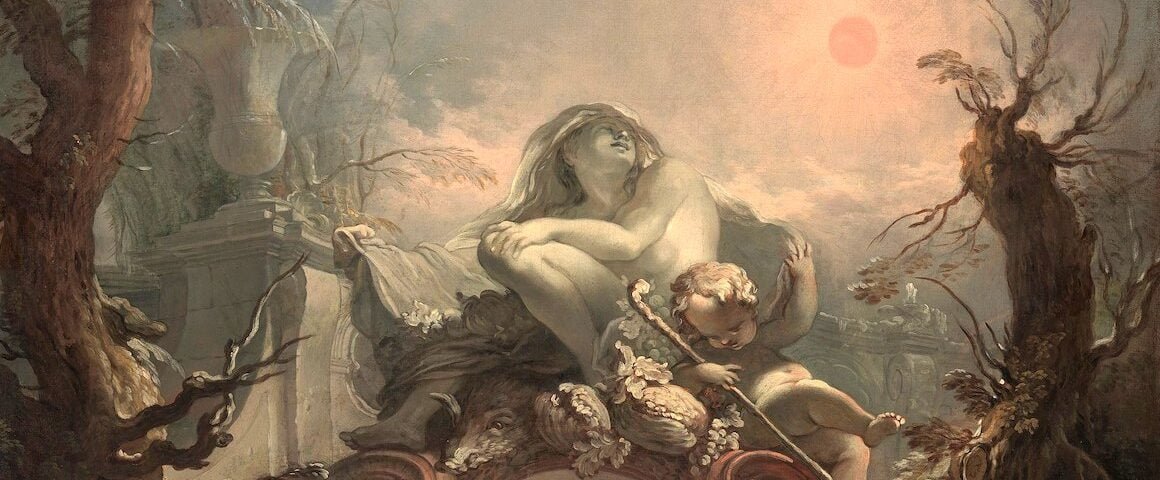The chaste moon cackles over fields of white
and pours its pregnant wrath upon
a black crepe sky where seems the sun
will never rise
nor fill its run
on this, the longest night.
Beneath her blushing falseness tramps a lone
and lonely hireling; bit with frost
in callouses and cuts, near lost
to winter’s plows,
gust swept and crossed
as ponderous limps he home.
There stands his hovel drowning in the snow,
patched keep befitting such a lord
of rented dirt, wages’ reward:
each corner damp
and each cracked board
invites the wind to blow
within to rake and rage the crumbling hearth.
The solemn glow of this yule’s log
burns low, a fitting epilogue
to stillborn days
and demagogues,
response of empty earth.
Where vestals mock his bed and vacant chair
and flames burn memories, he begs
an invocation for but dregs
and lees of life,
bending his legs
to any gods who’d hear.
Cold answers. He coughs, thumbs his violin,
and with its strings draws silvery prayers,
its notes ascend celestial stairs,
or so he dreams,
dispels his tears,
blames neither Jove nor Odin.
Then, from the desert, a Judean breath
spreads north from Caspia to Rus,
westward to Macedon—a truce
twixt Orient
and Dover, sluiced
cross earth to slip cruel Death.
And through his casement toward the East he spies
aloft a newborn star, a light
like rainbow rapiers splintering night,
gags lunar laughs,
and turns contrite
the funerary skies.
From soul to snow the notes arise: he sings
an unknown tune when how now full
and decked in buds unseasonal
the Virgin maid
removes her shawl
to greet the good Czech king.
He hymns of how the dissipated thief
and outcast harlot brook the streams
of grace: once scorned, now sympathy
they share with saints
around a tree
to find elusive peace.
He hums a wordless line, a lingering key:
for if the heavens dance anew,
might not time turn and hope subdue
the sterile grave’s
stone certitude,
crescendo toward one Day?
The smiling solitary plays in awe
his infant song, the child’s refrain
in aging hands made new again
in dawn’s crisp air
resounds. And then
the ice begins its thaw.






'A Midwinter Song' has no comments
Be the first to comment this post!